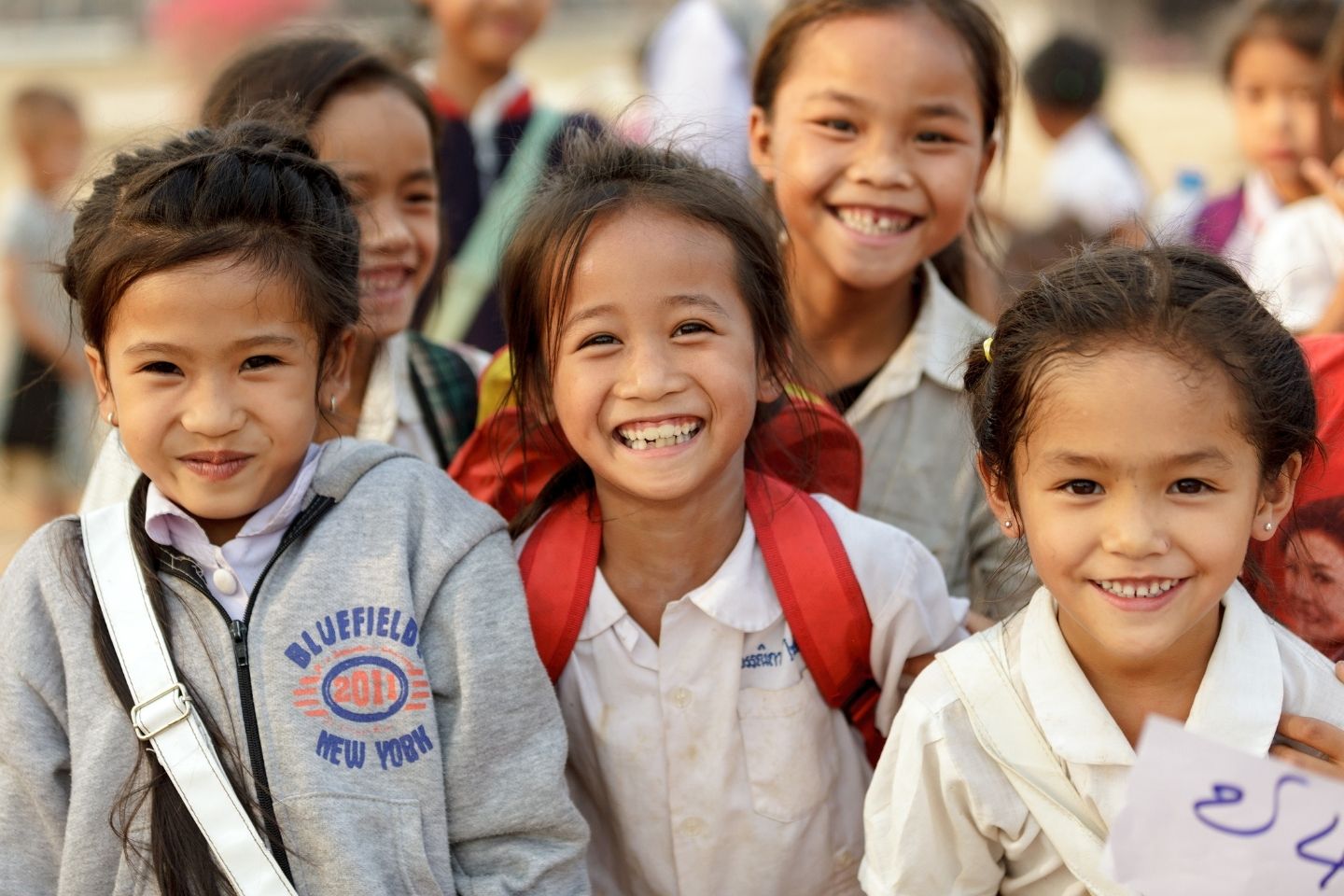
ASEAN-UK SAGE Programme launches an innovative approach to understanding the education experience of girls, women and other marginalised groups
Media release 15 Nov 2024 7 minute readThe UK, through its flagship ASEAN-UK Supporting the Advancement of Girls’ Education (SAGE) Programme has launched a groundbreaking initiative to address gender disparities in education across Southeast Asia.
The programme, developed in partnership with the Australian Council for Educational Research (ACER), introduces a new framework aimed at understanding and tackling inequalities in educational outcomes for girls, women, and other marginalised groups in the ASEAN region.
The programme’s initial outputs include a series of thematic pillar studies and a regional data gap map, which provide critical insights into the barriers facing marginalised groups in accessing education. These findings help inform evidence-based interventions to combat disparities in education in the ASEAN region, particularly in countries where gender disparities remain pronounced.
While gender gaps in education outcomes have closed in many areas, challenges still persist that constrain girls and women from capitalising on their education opportunities and realising their potential.
ASEAN-UK SAGE’s programme partner ACER has used publicly-available data from across ASEAN to develop a framework of indicators to understand the education experience of girls, women and marginalised groups. This framework is presented as a data gap map for the ASEAN region, as well as country-specific maps.
The framework suggests that by recognising education participation as lifelong, there are greater chances for girls and women to be empowered not just in the education context, but also in the wider economic and societal contexts. The first of its kind in the region, the framework can be used to support regional monitoring, and to identify gaps and underlying factors that explain critical differences in key educational, social and economic outcomes nationally and regionally.
ACER has also published a series of thematic studies to support the development of targeted evidence-based interventions to support girls, women and marginalised groups to close the development gap. The studies are based on the ASEAN-UK SAGE Programme’s 3 pillars:
-
strengthening foundational learning for boys and girls
-
engaging out-of-school girls and marginalised groups
-
tackling gender barriers to basic digital skills for employment.
The studies highlight key challenges in the region:
-
9 in 10 children in Lao PDR, the Philippines, Cambodia, and Myanmar, cannot read and understand a simple text by age 10.
-
Just 1 in 2 children complete lower-secondary school in Cambodia, Myanmar, Lao PDR and Timor-Leste. This drops to 1 in 4 for upper-secondary in Cambodia, Myanmar, and Lao PDR.
-
Up to 80% of future jobs in ASEAN will require at least basic digital skills by 2030.
-
The percentage of teachers who have not received pre- or in-service ICT training ranges from 3% in Viet Nam to 65% in Cambodia and Lao PDR.
In addition to presenting the available evidence on the situation in the region, the studies identify concrete, promising, evidence-based initiatives and suggest priorities for future investment by the ASEAN-UK SAGE Programme. These studies will also be disseminated to relevant policymakers in ASEAN Member States.
The 5-year ASEAN-UK SAGE Programme will use these findings to help ASEAN member states to develop effective policies and programmes that improve foundational learning and tackle constraints that limit the achievement of girls, women and marginalised groups. A pioneering initiative in support of the ASEAN-UK Plan of Action (2022-2026), the ASEAN-UK SAGE Programme has been developed since the UK gained official Dialogue Partner status with ASEAN in 2021. It is delivered by the British Council and the Southeast Asian Ministers’ of Education Organization (SEAMEO) Secretariat, in partnership with ACER and EdTech Hub.
Ambassador of the UK to ASEAN, H. E. Sarah Tiffin, said:
“Improving access to education and foundational learning outcomes for girls and marginalised groups is vital, and the UK Government is committed to supporting this through our flagship ASEAN-UK SAGE Programme. These research studies will be extremely useful for decision-makers in the region as they develop informed policies and interventions to support women and girls across the region. And they also provide a great foundation for the next steps under this Programme.”
Jeaniene Spink, Research Director, Education and Development, ACER said:
“To help combat gender disparities, it is critical to understand the education experiences of girls throughout their lives. That is why we’ve developed a new innovative approach to help address learning poverty in the ASEAN region and ensure that all girls meet their potential.”
Summer Xia, Director Southeast Asia, British Council said:
“We are delighted to launch the first publications from the ASEAN-UK SAGE Programme. This framework and these reports will enable us to target our efforts for the remainder of the Programme to ensure the strongest possible impact. With hard data like this, ASEAN policymakers can better understand the educational environment across the region. And we can ensure that we focus the work of our programme on the right areas and achieve results which improve lives across ASEAN. Thanks to our partner ACER for their targeted and strategic approach.”
ASEAN-UK SAGE is an ASEAN cooperation programme funded by UK International Development from the UK government.
The data gap maps can be viewed here:
The thematic pillars studies can be found here:
For more information on the ASEAN-UK SAGE Programme, please visit:
https://www.britishcouncil.id/en/programmes/education/sage
For media enquiries, please contact:
uniprayuti.prayuti@britishcouncil.org
For further information on the ASEAN-UK SAGE thematic pillar studies and data gap map, please contact: